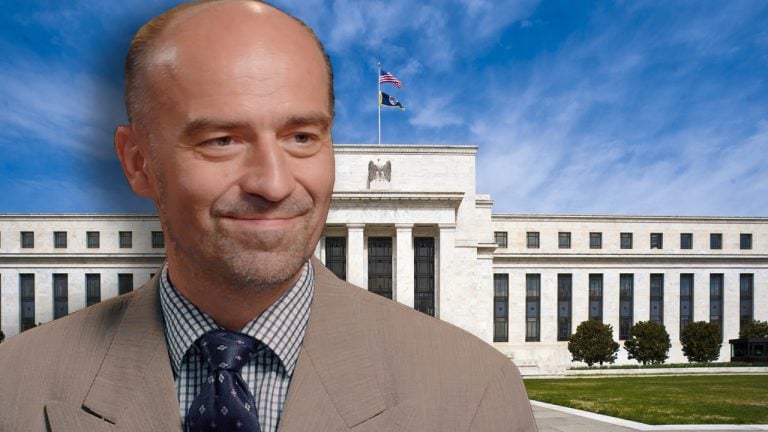According to the U.S. Federal Reserve, the central bank’s Fednow payment service will start operating in July, and participants will be certified in April to leverage the Fednow Pilot Program. Ken Montgomery, the Fednow program executive, is urging American financial institutions to make preparations to join the central bank’s new payment service. Economist Richard Werner, however, believes the timing of the Fednow rollout is “suspicious,” and he suggests that “maybe it’s all about rolling out” a central bank digital currency (CBDC).
Fednow Payment Service Prepares to Facilitate Instant Payments, Economist Suggests Launch Could Lead to a CBDC
The U.S. central bank is preparing to launch the Fednow payment service, and the Fed explains in a recently published blog post that there have been many interested candidates that want to utilize the service. The Fed details that entities planning to use the Fednow program in July include a “diverse mix of financial institutions of all sizes, the largest processors, and the U.S. Treasury.” According to Fednow program executive sponsor Tom Barkin, the president of the Federal Reserve Bank of Richmond, the launch is an “important milestone” for “instant payments.”
The Fednow system is allegedly able to facilitate payments and settlements instantly, “regardless of size or geographic location — around the clock, every day of the year.” With access to funds immediately, participants can manage their money in a more flexible fashion, according to the Fednow description. Access to the Fednow system will be granted via the Fedline Network, which already serves roughly 10,000 financial institutions and agents. “The Fednow Service will launch with a robust set of core clearing and settlement functionality and value-added features,” the announcement from the Federal Reserve explains.
Although, not everyone is excited about the central bank’s plans to enhance payments, as Florida governor Ron DeSantis recently revealed legislation that blocks a CBDC in the state of Florida. Speaking about the Fednow program, economist Richard Werner told Michelle Makori, the lead anchor and editor-in-chief at Kitco News, that the timing is “suspicious.” The Fednow rollout could pave the way toward surveillance capitalism and usher in a CBDC.
“The timing is suspicious,” Werner said to Makori during his interview. “Why do they roll this out now? The banking system has done its job well, in terms of making transfers of funds and payments, so why do we suddenly need to change it?”
Werner Insists the Government Wants to Eliminate Alternatives
Werner suspects that central banks will monopolize the banking industry and enforce “totalitarian control.” He emphasized that “we can’t really trust” central banks, and the main goal is to remove alternatives. Coincidentally, U.S. President Joe Biden’s recent economic report downplays crypto assets like bitcoin (BTC) and highlights that once the Fednow program is ready, there won’t be a need for alternatives. The White House claims that crypto assets fail to achieve the core aspects of sound money in contrast to fiat currencies like the U.S. dollar.
“They don’t want these alternatives,” Werner insists. “So they can just take your money. This is just the beginning, because the real totalitarian aspect comes into it when the programmability can be used, where it can be totally fine-tuned down to the person, and in real-time influence our behavior by restricting us from doing certain things … you’ll need the permission of the central planners.”
When a CBDC does eventually launch, Werner suspects that alternatives and cash will be eliminated gradually, and because CBDCs are programmable, control over one’s finances will not be difficult to achieve. Sure, you will be able to use the monetary ledger system, but in the end, the government’s “totalitarian control system” owns the funds.
“Once you put your money in the central bank, and the central bank issues your CBDC, legally they own the money,” Werner concluded. “You have a claim, but sadly this claim is subject to a number of conditions.” As of March 22, 2023, roughly 114 different countries are working on CBDC research and development, while 11 countries like China, Nigeria, and Venezuela have implemented such systems.
What are your thoughts on the Fednow payment service and its potential impact on the financial industry? What do you think about Werner’s opinions? Share your thoughts about this subject in the comments section below.










